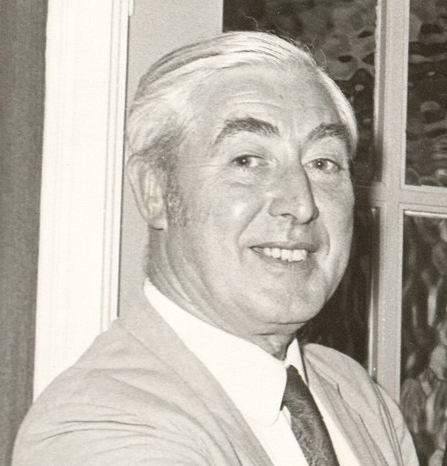Recorded Memories
Reflections on work, family and social life in Earl Shilton 1929-1980:
‘There used to be
crowds in the street…this was a very prosperous village…’
‘[Countermen]
about 700 in the district – a closed-shop affair – if one factory was short and
another busy…they’d borrow you…if you was in the warehouse…you could pretty
well go to work in your best suit’

Bill was born in November 1914 and started work at the age of 14 in 1928 at A. Bradbury Ltd, Keats Lane, Earl Shilton. He was an apprentice in the warehouse and did all
manner of work as a young lad earning between 5s[25p] and 7s 6d[37½p] a week. He remembers Toon’s whistle being blown at 7.50 every morning and Cotton’s factory whistle went
off at 7.55.
On pay day employees would line up and receive their money from the foreman in a little tin. At this time Earl Shilton was a prosperous village, indeed an article in the
Daily Mail had stated that Hinckley and District was the most prosperous in the country. As a young school boy Bill remembers Mr Bradbury walking round the school with
Mr Metcalf [the school Headmaster] choosing which boys he wanted to work at his factory. In those days all the factories had their own football and cricket teams and
Mr Bradbury had organized something called the Sunshine Cup whereby local teams competed for this cup and money raised given to charity.
Good money could be earned in the hosiery trade once an employee had completed his or her apprenticeship. The warehouse was a closed shop with about 700 members. It was a clean
job and you could go to work in a suit. You didn’t need a brilliant education. Bill met his future wife, Doris, at a garden party at Cotton’s. Doris worked as a mender
at Atkins and came to work in Hinckley on the ‘girls train’ from Nuneaton. Bill refers to his early working life as ‘halcyon days’ all beer and skittles. Factories not only
had football and cricket teams but darts teams.
He remembers the hunt coming to the village and everyone would gather in the streets and bread and cheese would be handed out.
He remembers taking the day off from work to follow the hunt, making up for lost time the following day.
Factories could sometimes be short of work and Bill was ‘borrowed’ on a couple of occasions. When ‘borrowed’ by King and Marvin, before the outbreak of WW2, he was asked to stay;
he then spent 25 years working there as a counterman, having spent six years in the navy during the war. His aunt and uncle who brought him up both had good jobs, his
aunt a knitter at Toon’s and his uncle a clicker in the boot and shoe industry; he was always well dressed. One of his first jobs was sorting out bags. He remembers he often went home with bleeding
hands after sewing up the bags with a sisal thread. The bags were full of hose ready to be taken by lorry to Hinckley Railway Station. Bradbury’s was a big factory with three
or four floors - yarn to knitters, trimmers, welters, linkers, menders and the counterman who was responsible for a perfect hose and highly skilled.
|
|
|
|
|
